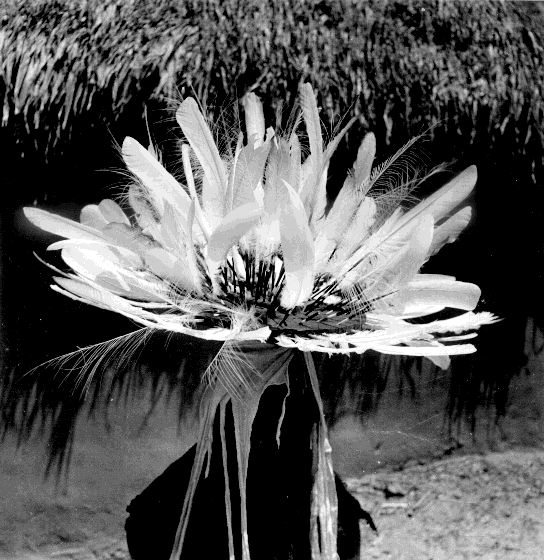 |
 |
|
F. Chidozie Ogbalu (1927-1990), sometimes called the "father" of Igbo language and culture, was born in Adagbe, Abagana, and was a lifelong teacher and champion of his Igbo heritage. He taught Latin, Geography and Igbo at a number of schools, and took a great interest in the Igbo-related controversies of his time. These controversies revolved around efforts to standardize the writing and spelling of the Igbo language, and to improve its numeral system. Thus in 1948, while teaching at Dennis Memorial Grammar School, Onitsha, Ogbalu wrote a newspaper article in The Nigerian Spokesman attacking the colonial administration for its failure to encourage standardization, and forcefully arguing against a new "Adams-Ward" orthography being advocated by some linguists. This orthography, which he called "obnoxious," involved phonetic symbols that would inevitably have complicated the process of learning to read the language. Ogbalu's principal at Dennis Memorial then advised him that instead of writing to the newspapers, he would do better to write and publish his own material in the Igbo language. Ogbalu took up the challenge, and by the following year he had founded the Society for Promoting Igbo Language and Culture (SPILC). He was then only 22 years old. (Eight years later, carrying the advice a step further, he established the Varsity Press in Onitsha.) The SPILC had lofty aims, such as promoting the study and knowledge of Igbo language; sponsoring lectures, conferences, and teaching materials; encouraging young writers; and raising the consciousness of the Igbo people so that they would not lose sight of their cultural heritage. The SPILC seminars (one of which I was privileged to attend in 1979) were influential in the establishment of a Department of Igbo Language and Linguistics at the University of Nigeria, Nsukka. Most importantly, they resulted in the eventual creation of the Onwu Commission, which devised an orthography more acceptable than the Adams-Ward one. Dr. Ogbalu was able to bring together people who shared his aims, and many of them are striving to keep the SPILC alive now that it has lost its great leader. In the course of his all-too-brief life, Dr. Ogbalu published a remarkable number of works that gathered and preserved Igbo oral literature. More than 50 of his writings are listed in the Afigbo volume mentioned at the end of this Introduction. Ilu Igbo (The Book of Igbo Proverbs) was printed by the Varsity Press, Onitsha. The proverbs I've translated for this site are the contents of the Second Edition, 1965. These translations should be considered as drafts, because they were made many years ago when my understanding of Igbo was even more limited than it is now. I hope some day to edit and improve them in the light of my current knowledge of Igbo. Most of the parenthetical material following some of the proverbs was placed there by Ogbalu himself. Here and there I inserted explanatory material, but unfortunately such insertions are not marked to distinguish them from the author's words. (I had no notion at the time that these rough translations would ever be shown to others.) None of my Igbo translations over the years could have been accomplished without the help of native speakers whom I recruited when they were students at Philander Smith College in Little Rock, Arkansas. The one who worked with me the longest (13 years) was Joel Ikeoku Nwamuo, an Ngwa man. Joel died after a serious illness and his remains rest in Little Rock. Much
of the above biographical
material was taken from F. C. Ogbalu And the
Igbo Language, edited
by A. E. Afigbo (Onitsha: University Publishing
Company, 1995). It contains
essays written as a memorial to F. C. Ogbalu after
his untimely death in
an automobile accident at the age of 63.
Frances
W. Pritchett
|
| -- proverbs index page -- Igbo language index page -- |